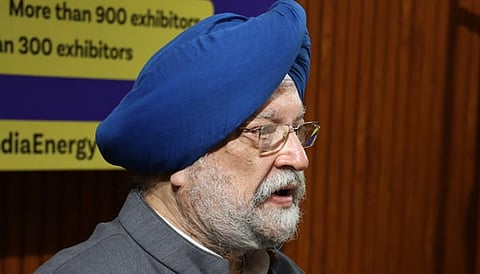

New Delhi: Stating that India is concerned but not worried about the ongoing crisis in the Red Sea, Minister for Petroleum and Natural Gas Hardeep Singh Puri said on Monday that the country will discuss the crisis with other nations on the sidelines of the upcoming India Energy Week (IEW) 2024 in Goa. He added that the government has already been in discussions with other nations about the issue.
Puri said that there are several non-state actors that are working on continuing the crisis in the Red Sea. “We need to convince ourselves that they are acting on their own. But I’m convinced that everybody now wants to bring the situation under relative calm,” he added.
“Does it (the Red Sea crisis) affect the trade of any country, including India? Obviously, it affects me. But am I worried about that effect? No, I'm not. I am concerned, but not worried,” said the Petroleum Minister.
“I think 30 percent of our imports and about 50 percent of our exports go through the other route. What will happen is that if the tension continues, you will find other routes, so freight charges will go up, etc. But I’m confident that this situation has not reached a point where we start worrying about it. Just now we are concerned, we are talking to the concerned people,” said the minister.
“We will have to navigate through. Will there be discussions on the sidelines (of IEW 2024)? Yes, certainly. There will be discussions. And I am very confident that none of the major state actors want an escalation of this,” said the minister.
Retaliatory strikes carried out by the US and UK on rebel-held Yemen in response to the attacks on tankers by Iran-backed Houthi insurgents in the Red Sea have marked an escalation in tensions in the region. The Houthis said earlier that they were targeting vessels linked to Israel and the attacks were being carried out in support of Gaza. However, since November, the group has been targeting vessels which have nothing to do with Israel, disrupting the vital route which normally carries around 12 percent of the global maritime trade. While many fuel tankers continue using the Red Sea route, Qatar Energy, the world's second-largest Liquefied Natural Gas (LNG) exporter, stopped sending tankers through the Red Sea, citing security concerns.
